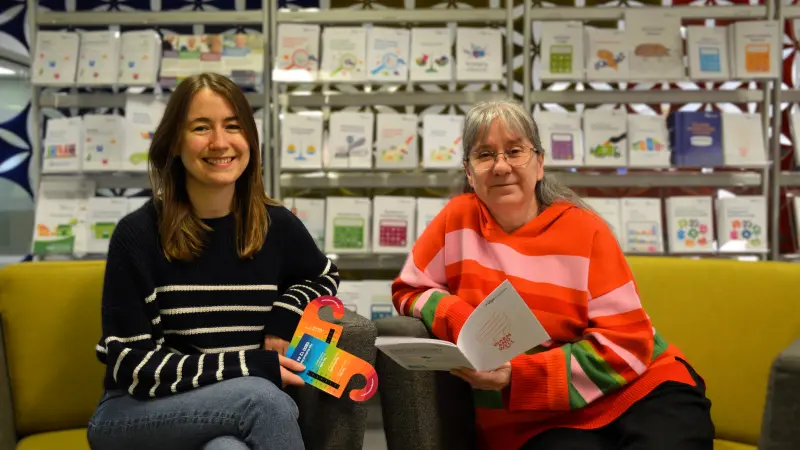Blog: Big Rewards for Small Changes
Take Five to Age Well, launched today, is a pledge campaign that invites the nation to make small changes in daily routine for better ageing. We asked healthy ageing guru Professor Dawn Skelton why she will be taking part.
We can make a huge difference to how well we age. While genes do influence our ageing, what matters more is how well we nurture our bodies and brains, and our response to the cards that life has dealt us.
There are many examples of people with a long-term health condition who don’t notice any symptoms for a long time, because they are very physically active. When diagnosed, they often live well with their condition instead of it ruling their lives.
We owe it to ourselves to take steps to make it more likely we enjoy later life. This can also give us more energy for demands common in mid-life, including tiring jobs and caring responsibilities.
We’re born with big reserves of fitness and brain power and can get away with not taking care of ourselves for quite a while. But these reserves dip from age 30, which then becomes noticeable in our 40s and 50s when, for example, some activities tire us more than we expect.
Making small changes in our routines can give us extra reserves. With a bit of regular maintenance, a motorbike can last for a long time in great condition, and the same applies to us. Too often we get in a rut and allow rust to set in.
Making a personal pledge to work towards better ageing, as part of Take Five to Age Well, can help. Research shows that small changes, often involving minimal effort, can have a powerful impact on how well we age, if kept up over time.
Take Five to Age Well suggests changes to make, each day in September, in five areas research shows really matter - healthy eating, hydration, physical activity, social connection, and stimulating your brain.
I suggest picking one change that fits easily into your daily routines and, if that works, building on it with another small change. If you sign up online, the Take Five to Age Well team will offer you tips and encouragement through the month.
One thing I love about Take Five to Age Well is that it shows how different areas of health and wellbeing are interconnected. A big focus of my work is reducing falls in the older population. To minimise your risk of falling, you need to be physically active, so you have strong muscles and bones. You need to take care of your brain so that, for example, one function of the brain (‘executive function’) helps you plan ahead to spot and avoid hazards while walking and chatting.
You need to eat well, as being malnourished will weaken your muscles and bones. You need to drink enough water, as dehydration can affect or worsen your balance. Research also shows socially isolated people are more likely to fall.
I’ve made a couple of pledges as part of Take Five to Age Well. I’ve done a lot of research on how sitting too much and for too long ages us faster, but my job is a desk job and I got out of the habit of regularly standing. So, I’ve decided to set a timer on my phone to remind me to get up and move about at least once an hour, including in meetings.
I’ll also do jigsaws daily to boost my brain. I want to stay sharp, and while mentally stimulating the brain benefits of my job are a bit one sided. Jigsaws will help with my spatial awareness and ability to plan-ahead.
What will you do?
Sign up to the Take Five to Age Well Challenge for September
Find out about the Take Five to Age Well Challenge for groups
Dawn Skelton is Professor of Ageing and Health at Glasgow Caledonian University and Chair of Rehabilitation Group at British Geriatrics Society


